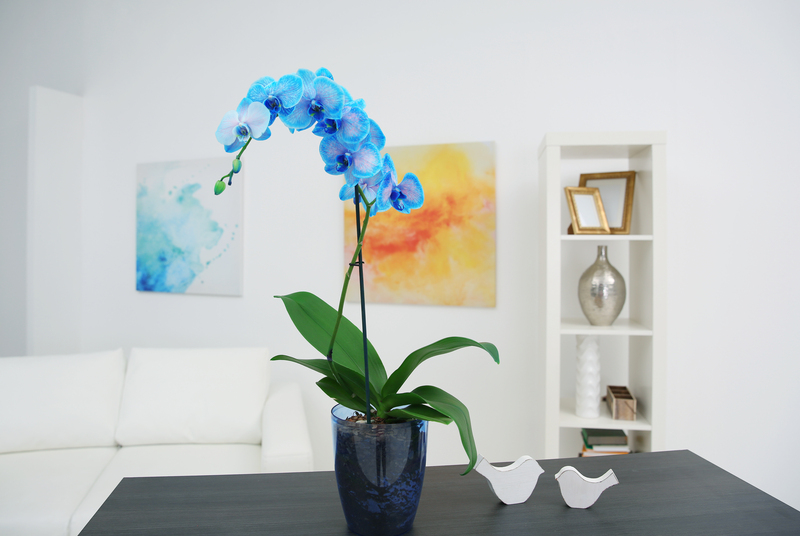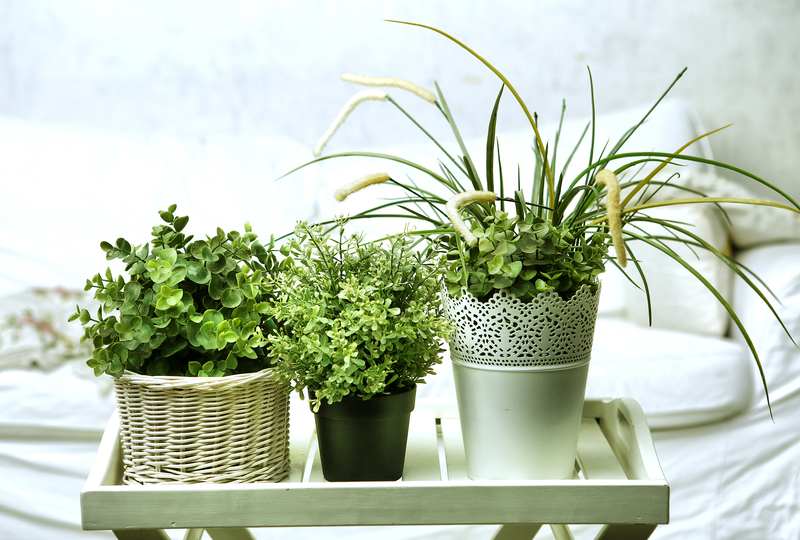Unlock the door to successful gardening with these 9 beginner tips
Posted on 05/06/2025
Unlock the Door to Successful Gardening with These 9 Beginner Tips
If you've always dreamed of cultivating a lush, thriving garden but feel overwhelmed as a beginner, you're not alone. Gardening may seem daunting at first, but with the right guidance, anyone can enjoy successful gardening from the very start. In this comprehensive guide, we'll explore nine beginner gardening tips that serve as the key to unlocking a world of green possibilities. Whether your goal is flavorful vegetables, vibrant flowers, or a tranquil oasis, these expert insights are your roadmap to gardening success.
Why Beginner Gardening Tips Matter
Starting a garden introduces you to a rewarding hobby that improves your health, enhances your home, and connects you with nature. But beginners often encounter common pitfalls--poor soil management, improper plant selection, or inconsistent watering, to name a few. Leveraging expert gardening advice for beginners makes all the difference, paving the way for a flourishing garden and lasting confidence.

1. Choose the Right Location for Your Garden
The first step to gardening success is finding the ideal spot for your plants. The right location provides the foundation your garden needs to thrive:
- Sunlight: Most garden plants require at least 6-8 hours of direct sunlight daily. Observe your yard or balcony to identify sunny patches.
- Accessibility: Place your garden close to your home for easy access to water and frequent tending.
- Drainage: Avoid areas prone to waterlogging. Look for well-drained soil, or consider raised beds and containers if needed.
Taking the time to select the perfect garden site unlocks healthy plant growth and minimizes challenges later. Remember, your garden's location will determine what you can grow and how much care is required.
2. Understand Your Soil
Soil is the backbone of every productive garden. The better you understand it, the more successful your gardening journey will be.
- Test Your Soil: Use an at-home test kit or send a sample to your local extension service. This identifies pH, nutrients, and texture.
- Amend When Necessary: If your soil lacks nutrients or has poor structure, enrich it with compost, organic matter, or specific amendments like lime or sulfur based on test recommendations.
Good soil supports vigorous root development, efficient water retention, and strong plant immune systems. As you master soil preparation for new gardeners, you lay the groundwork for bountiful harvests and beautiful blooms.
3. Start Small and Expand Gradually
It's tempting to dream big, but beginning with a manageable plot sets you up for gardening success. Here's why starting small is a key gardening strategy:
- Less Overwhelm: Fewer plants and smaller spaces are easier to manage, water, and maintain.
- Learn and Observe: A small area lets you closely monitor plant health and experiment with proven beginner gardening techniques.
- Room to Grow: As your skills and confidence soar, you'll be ready to expand your garden with new varieties and methods.
Remember, a well-tended small plot will outperform a large, untamed one every time.
4. Select Easy-to-Grow Plants
Plant selection for beginners is crucial. Choose resilient, low-maintenance varieties that guarantee quick results and boost your confidence:
- Vegetables: Lettuce, radishes, beans, and zucchinis adapt well to most climates and are highly productive.
- Herbs: Basil, chives, parsley, and mint grow readily in containers or garden beds, offering flavor and fragrance.
- Flowers: Marigolds, sunflowers, nasturtiums, and zinnias brighten the garden and attract pollinators.
Read plant tags or seed packets for sunlight, spacing, and watering needs. As you gain experience, you can introduce more specialty or sensitive varieties.
5. Master Proper Watering Techniques
Water is essential, but more isn't always better. Overwatering is a common beginner mistake. Here are some strong tips for watering:
- Water Deeply, Not Frequently: Deep watering encourages roots to grow downwards, improving drought resilience.
- Morning is Best: Watering in the early hours prevents moisture loss and protects foliage from fungal diseases.
- Check Soil Moisture: Before watering, stick your finger an inch into the soil. If it feels dry, it's time to water--if it's damp, wait a day.
Proper watering habits ensure robust growth and keep diseases at bay, unlocking your garden's full potential.
6. Feed Your Plants Wisely
Nutrients are vital for healthy, productive plants. To succeed at beginner garden fertilizing:
- Compost: Rich, homemade or store-bought compost naturally replenishes soil nutrients and boosts structure.
- Slow-Release Fertilizers: These feed plants gradually, reducing the risk of burning roots.
- Know Plant Requirements: Leafy veggies thrive on nitrogen, while fruits and flowers benefit from phosphorus and potassium. Use balanced or specific fertilizers as needed.
Feed according to plant needs, avoid over-fertilizing, and always follow label instructions to encourage consistent, lush growth.
7. Control Weeds Effectively
Weeds compete with your plants for light, water, and nutrients. Beginner gardeners can reduce weeds with these strategies:
- Mulch: A thick layer of organic mulch (like straw, wood chips, or compost) suppresses weed germs, conserves moisture, and enriches soil.
- Hand Pull Early: Remove weeds when they are young and before they set seeds.
- Stay Consistent: Weed a little each time you visit your garden to keep things under control.
Weed management is essential for both beginner and expert gardeners to maintain a vibrant, productive space.
8. Embrace Mulching for Soil Health
Mulching is an often overlooked beginner gardening tactic that unlocks multiple benefits for your soil and plants:
- Moisture Retention: Mulch keeps the soil cool and reduces evaporation, cutting down on your watering chores.
- Soil Enrichment: As organic mulches break down, they release nutrients back into the earth.
- Erosion Control: Mulch shields soil from heavy rains and wind, preserving the structure you've worked hard to build.
Apply a 2-3 inch layer of mulch--but avoid piling it directly against plant stems to prevent rot. Mulching is a smart gardening habit that supports both plant health and ease of maintenance.
9. Keep Learning and Enjoy the Journey
Above all, enjoy the learning process. Every gardener, even the most experienced, faces success and setbacks. Unlock your gardening future by:
- Tracking Progress: Keep a gardening journal, recording planting dates, weather, and results. This helps you improve year after year.
- Learning from Others: Join local gardening clubs, online forums, or community gardens for real-world advice.
- Experimenting: Don't be afraid to try new plants or techniques--gardening is about growth for both plants and people.
Celebrate your achievements, no matter how small. With an open mind and a curious spirit, your gardening journey will flourish.

Frequently Asked Questions About Beginner Gardening
What is the easiest way to start a small garden?
Container gardening is one of the simplest options--choose large pots, fill with high-quality potting mix, and start with easy-to-grow herbs or vegetables. Alternatively, try a 4x4 raised bed for your first plot.
How often should I water my new garden?
Water needs vary with plant type, weather, and soil. As a rule of thumb, aim for one inch of water per week (including rainfall), but always check the soil for moisture before watering.
How can I tell if my soil is healthy?
Healthy garden soil is dark, crumbly, and teeming with earthworms or insects. Plants in healthy soil show steady growth, vibrant color, and fewer disease or pest issues.
What tools should every beginner gardener own?
Start with these basics:
- Trowel
- Pruners
- Watering can or hose
- Gloves
- Garden fork or spade
Conclusion: Open the Door to Gardening Success
Beginning your gardening adventure may seem daunting, but with these 9 foundational beginner tips, you're well on your way to unlocking the door to successful gardening. From site selection and soil care to plant choices and daily habits, every step you take leads to a more beautiful, productive, and rewarding garden.
So, grab your trowel, step outside, and start your journey with confidence. The world of gardening is ready to welcome you--one seed at a time!
- Start small, learn lots, and have fun
- Opt for easy-care plants and work your way up
- Transform even the tiniest yard or balcony into a lush haven
Remember, every master gardener once started where you are now. With patience, curiosity, and these tried-and-true gardening tips for beginners, you can cultivate both your garden and your passion for a lifetime of successful gardening.
Latest Posts
Creating a Backyard Adventure for Children
Transform your yard with these nine privacy-enhancing hedges
Beginner's Guide to Herb Gardens

